Quick search
CTRL+K
Quick search
CTRL+K


Since 2010, the Global Law Experts annual awards have been celebrating excellence, innovation and performance across the legal communities from around the world.
posted 2 years ago
By Rossana Chu, Jacky Chan:
With the COP26 Climate Change Conference dominating the headlines, there is rising attention to environment, social and governance (“ESG”) issues, in particular climate change. The financial sector has an important role in the transition to a more sustainable future, and disclosure provides the bedrock in the pursuit of a more sustainable economy. As a result, there has been growing demand for useful climate-related financial information to be made by listed companies. In this article, we will discuss the latest development in ESG reporting in Hong Kong and the UK.
Financial Stability Board and its Task Force on Climate-Related Financial Disclosures
The Financial Stability Board (“FSB”) is an international body that monitors and makes recommendations about the global financial system. Its membership includes most international financial centres such as Mainland China, Hong Kong, Brazil, Canada, France, Germany, India, Japan, Korea, Russia, Singapore, South Africa, the UK and the US, as well as international organizations like the International Monetary Fund, the World Bank, the International Organization of Securities Commissions and the International Accounting Standards Board.
FSB established the Task Force on Climate-Related Financial Disclosures (“TCFD”) to develop recommendations for more effective climate-related disclosures that could promote more informed investment, credit, and insurance underwriting decisions. A stronger concern over the financial system’s exposures to climate-related risks will encourage companies to incorporate climate-related risks and opportunities into their risk management and strategic planning processes. As this occurs, investments will be channelled to sustainable and resilient solutions, opportunities, and business models.
TCFD’s 2017 recommendations
In 2017, the TCFD released its recommendations (“TCFD Recommendations”) on climate-related financial disclosures in four areas that represent core elements of how companies operate:
Hong Kong’s ESG Reporting Guide under the Listing Rules
In Hong Kong, the ESG reporting obligations applicable to listed companies were updated to incorporate the elements of the TCFD Recommendations, and the latest requirements took effect for financial years beginning on or after 1 July 2020. Listed companies are required to make disclosures in annual ESG reports on ESG aspects, including but not limited to climate-related issues. The Hong Kong Stock Exchange has provided an ESG Reporting Guide[1] in the Listing Rules to assist corporations to map their disclosures.
It is essential to disclose (i) the board’s oversight of ESG issues, (ii) the management approach and strategy, including the process used to evaluate, prioritise and manage material ESG-related issues (including risks to the company’s business), and (iii) how the board reviews progress made against ESG-related goals and targets with an explanation of how they relate to the company’s businesses.
The other subject areas covered in the ESG Reporting Guide are “comply or explain” provisions. Each listed company is to make disclosure or explain why a disclosure is not made. While this approach allows flexibility to report on those aspects that are relevant to the company’s business, it helps ensure that the company will address each of the aspects while preparing the ESG report. The reporting areas include emissions, use of resources, environment and natural resources, employment and labour practices such as health and safety, operating practices including supply chain management and anti-corruption, and community engagement. Notably, there is a specific aspect of climate change as well as some key performance indicators on how significant climate-related issues have impacted or may impact the company and the actions taken to manage such issues.
Non-compliance with the ESG Reporting Guide constitutes a breach of the Listing Rules, which may result in investigations or regulatory responses such as disciplinary actions or issuance of warning or caution letters by the Stock Exchange, depending on the facts and circumstances.
“Guidance on Climate Disclosures” published by the Hong Kong Exchanges and Clearing Limited
The Hong Kong Exchanges and Clearing Limited published a “Guidance on Climate Disclosures” [2] on 5 November 2021 to provide practical guidance to assist listed companies in complying with the TCFD Recommendations and fulfilling the mandatory reporting requirements under the ESG Reporting Guide. The Guidance targets companies that are yet to develop substantive in-house expertise on climate-related issues and seeks to mitigate the challenges faced by most companies in relation to these issues.
Disclosure obligations by fund managers in Hong Kong
The Securities and Futures Commission of Hong Kong (“SFC”) issued a circular on 29 June 2021[3] to set out its expectations on SFC-authorized unit trusts and mutual funds which incorporate ESG, climate change and/or sustainability factors (“ESG factors”) as their key investment focus (“ESG Funds”) with a view to improve their comparability, transparency, and visibility. The circular will become effective from 1 January 2022 and re-define ESG Funds and their disclosure and reporting obligations. An ESG Fund must disclose in its offering document information regarding (i) its ESG focus, (ii) its ESG investment strategy, (iii) its expected or minimum proportion of ESG investment in terms of net asset value, (iv) any reference benchmark, and (v) related risks and limitations. The ESG Fund should also conduct periodic assessment of the attainment of its ESG focus at least annually and disclose the result of such assessment to its investors through appropriate means, for example in its annual report. The disclosure should cover how it has attained its ESG focus during the assessment period, the basis of the assessment performed (including any estimations and limitations), and comparison between the current and at least the previous assessment period.
As another initiative, the SFC announced in August 2021 that the Fund Manager Code of Conduct will be amended to require fund managers managing collective investment schemes (“CIS”) to (i) take climate-related risks into consideration in their investment and risk management processes and (ii) make appropriate disclosures. The requirements cover four key elements, namely governance, investment management, risk management and disclosure. Baseline requirements are to be complied with by all those managing CIS, while enhanced standards only apply to fund managers with CIS under management which equal or exceed HK$8 billion (approximately US$1 billion) in fund assets for any three months in the previous reporting year. [4]
The SFC stresses that it will keep abreast of the development of local and international regulations and standards in this area and will refine its requirements and provide further guidance when necessary.
The Companies (Strategic Report) (Climate-related Financial Disclosure) Regulations 2021 of the UK (the “Regulations”)
In the UK, currently only listed companies are required to make climate-related disclosure in their annual reports. The Financial Conduct Authority (“FCA”) made it compulsory for listed UK companies (companies with a premium listing, and companies with a standard listing for financial years beginning on or after 1 January 2022) to disclose on a “comply or explain” basis against the TCFD Recommendations.
On 29 October 2021, the UK announced that the Regulations has been laid before the Houses of Parliament. The proposals contained would amend the Companies Act 2006 and require many of the largest UK companies (including both listed companies and large private companies with more than 500 employees) to disclose climate-related financial information in the non-financial information statement portion of their strategic reports that will be publicly available and accessible to investors and the general public. If passed into law, the Regulations will be effective from 6 April 2022 and companies subject to them will need to comply with the new reporting requirements for accounting periods starting on or after this date.
Although the exact content required is not clear, the Department for Business, Energy and Industrial Strategy of the UK has stated that it intends to release more comprehensive guidance before the end of 2021 to assist companies in preparing to implement the Regulations. Further, some useful publications on making disclosures in accordance with the TCFD Recommendations which companies can draw reference to when preparing ahead for the regime have been published, including the London Stock Exchange’s guidance [5] for London-listed companies regarding climate reporting best practices and implementation of the TCFD Recommendations. In line with such recommendations, the following disclosures are likely to be required[6] :
The new requirements will ensure that the larger corporations consider the risks that they face as a result of climate change and encourage them to set out plans or goals on sustainability and emission reduction. This helps both investors and businesses to better understand the financial impacts of their exposure to climate change, and supports the greening of the UK economy. Through the Regulations, the UK is committed to become the first country in the world to make TCFD-aligned disclosures fully mandatory by 2025, with most requirements in place by 2023, going beyond the “comply or explain” approach.
A comparison in ESG disclosure approaches between Hong Kong and UK
The UK has various existing regulations in place covering ESG aspects that companies must comply with, including the UK Corporate Governance Code, the Climate Change Act, the Modern Slavery Act, the Companies (Directors’ Report) and Limited Liability Partnerships (Energy and Carbon Report) Regulations 2018, etc. In addition, the FCA published a consultation regarding ESG disclosures by asset managers on 3 November 2021[7] that will be open until 7 January 2022, seeking feedback on potential approaches on sustainability disclosure requirements for asset managers and FCA-regulated asset owners.
In respect of ESG disclosures, Hong Kong so far has been focusing on listed companies and certain funds and fund managers. This is probably due to the high proportion of small-medium-sized businesses and their wish to maintain privacy of their performance in financial and other aspects, e.g. private limited companies incorporated in Hong Kong are generally not required to make their audited financial statements available to the public. However, there is an increasing call for the large private companies to tell the public more about their ESG strategies and efforts, especially those in the energy generating or high energy consumption industries.
The Green and Sustainable Finance Cross-Agency Steering Group co-chaired by the Hong Kong Monetary Authority and the SFC announced in December 2020[8] that it was taking steps to require financial institutions (including banks, asset managers, insurance companies and pension trustees) to enhance climate-related disclosures in line with TCFD Recommendations no later than 2025.
Takeaways
ESG’s importance is increasingly evident as regulators of different jurisdictions and international organizations start rolling out new ESG disclosure requirements for corporates and financial institutions. We expect that ESG regulations will continue to grow in scope in the coming years. On the other hand, more guidance or even standards will be issued to help overcome issues of disclosure consistency, data relevance and quality and greenwashing attempts.
ESG should be a clear standing item on the board agenda, and companies should be aware of the increasing disclosure standards, heightened regulatory scrutiny and, more importantly, the appeal for making investments in green projects and emission reduction initiatives.
The author would like to thank Ms. Nicole Chan (trainee solicitor) for her contribution in this article.
____________________________
[1] Appendix 27 of the Main Board Listing Rules and Appendix 20 of the GEM Listing Rules.
[2] https://www.hkex.com.hk/-/media/HKEX-Market/Listing/Rules-and-Guidance/Environmental-Social-and-Governance/Exchanges-guidance-materials-on-ESG/guidance_climate_disclosures.pdf?la=en
[3] https://apps.sfc.hk/edistributionWeb/api/circular/openFile?lang=EN&refNo=21EC27
[4] https://apps.sfc.hk/edistributionWeb/api/circular/openFile?lang=EN&refNo=21EC31
[5] https://docs.londonstockexchange.com/sites/default/files/documents/LSE_guide_to_climate_reporting_final_0.pdf
[6] https://assets.bbhub.io/company/sites/60/2021/07/2021-TCFD-Implementing_Guidance.pdf
[7] https://www.fca.org.uk/publications/discussion-papers/dp21-4-sustainability-disclosure-requirements-investment-labels
[8] https://www.hkma.gov.hk/eng/news-and-media/press-releases/2020/12/20201217-4/
Download (pdf)
Note: This material has been prepared for general information purposes only and is not intended to be relied upon as professional advice for any cases. Should you need further information or legal advice, please contact us.
Author


There are no results matching your search.
Resetposted 1 day ago
posted 2 days ago
posted 2 days ago
posted 2 days ago
posted 2 days ago
posted 3 days ago
posted 3 days ago
There are no results matching your search.
ResetFind the right Legal Expert for your business
Sign up for the latest legal briefings and news within Global Law Experts’ community, as well as a whole host of features, editorial and conference updates direct to your email inbox.
Naturally you can unsubscribe at any time.
Global Law Experts is dedicated to providing exceptional legal services to clients around the world. With a vast network of highly skilled and experienced lawyers, we are committed to delivering innovative and tailored solutions to meet the diverse needs of our clients in various jurisdictions.